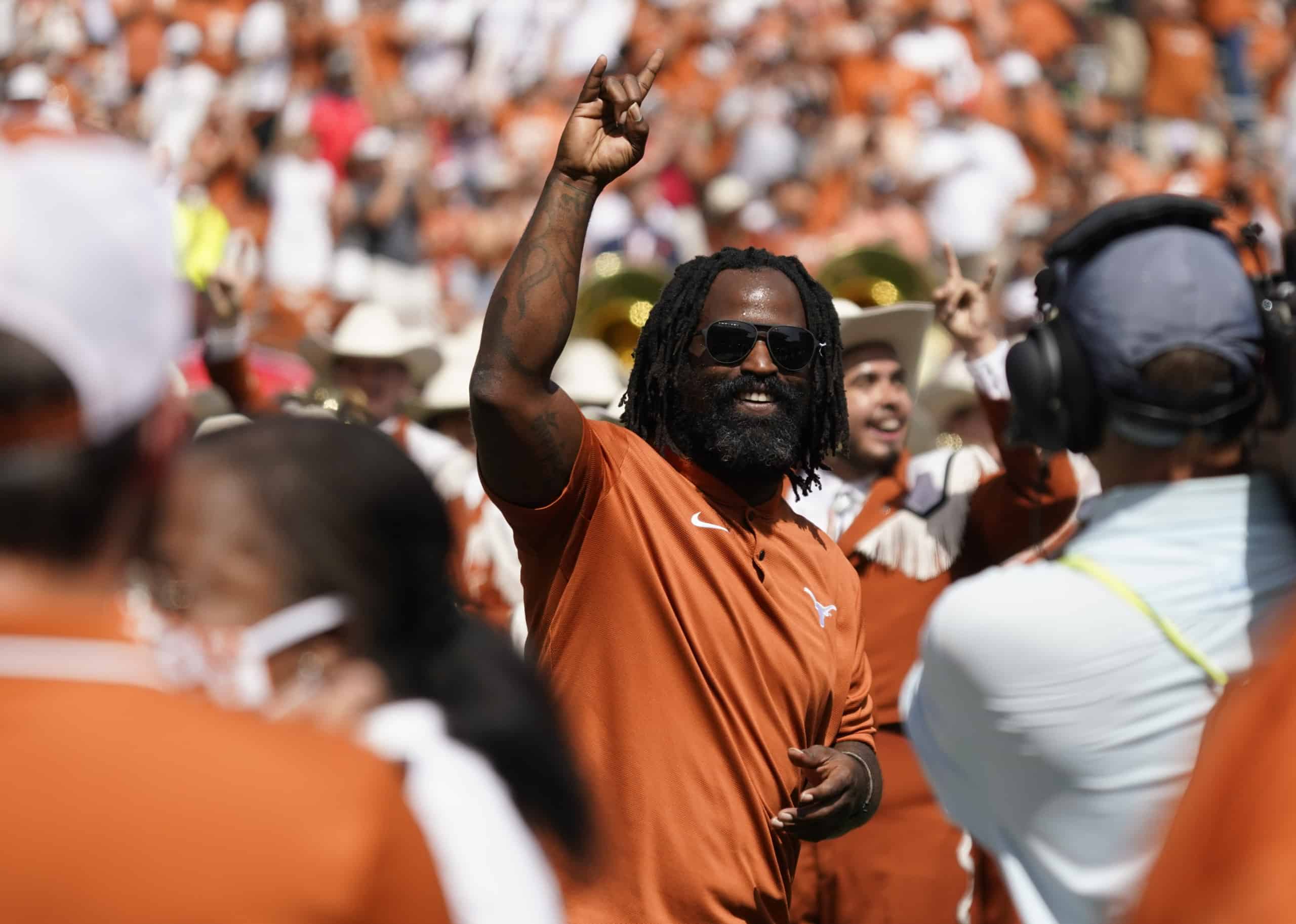Former Heisman Trophy winner Ricky Williams has added his voice to a chorus of those disenchanted with new name, image, and likeness rules.
This week, Williams told Front Office Sports that he thought NIL was not only “revolutionary,” but also the biggest business-related shift in the sports industry.
“The joke was when the star player drives up in the fancy car. And now, all of the star players are driving up in fancy cars,” he said. “The biggest taboo in college sports is now becoming the norm.”
But Williams voiced concern about the future of “amateur sports,” i.e. those where athletes aren’t paid to play. He believes NIL and new transfer rules “blur” the lines, potentially killing college sports altogether — and suggested athletes’ NIL earnings should go into a trust until they graduate.
Williams isn’t the only one to voice his concern about the zeitgeist of the NCAA’s amateurism concept. From Alabama Sen. Tommy Tuberville to Ole Miss coach Lane Kiffin, many in the college sports community have talked about how NIL has created opportunities for pay for play, “free agency,” and even the professionalization of college sports.
But giving athletes NIL rules actually makes them closer to their non-athlete counterparts than before. All students have NIL rights — and so does everyone in America. With NIL, athletes have more similar opportunities to regular students.
Besides, college sports — and football in particular — became big business long before NIL was even a discussion. Over the past decade, Power 5 conferences have signed gargantuan media rights contracts and racked up sponsorships that pay out millions of dollars to schools and athletic department officials each year.
- Just last week, the Big Ten signed the biggest media rights deal in the history of college sports — a $7 billion-plus package that tops many professional leagues’ deals.
- On Wednesday, Alabama upped Nick Saban’s contract to more than $90 million over eight years, more than that of most NFL coaches.
- Schools like Miami have so much money they don’t know what to do with it beyond building training facilities, often more lavish than in the pros.
As of now, athletes still aren’t getting a share of revenues — though from Penn State to Ohio State, many have begun to ask why not. NIL money is only paid through third parties outside the athletic department, even if some departments are legally allowed to help arrange deals.
Despite all the continued fear-mongering about how NIL could kill the purity of college football, the second season of the NIL era is slated to kick off this weekend without a hitch.






![[Subscription Customers Only] Jun 15, 2025; Seattle, Washington, USA; Botafogo owner John Textor inside the stadium before the match during a group stage match of the 2025 FIFA Club World Cup at Lumen Field.](https://frontofficesports.com/wp-content/uploads/2026/02/USATSI_26465842_168416386_lowres-scaled.jpg?quality=100&w=1024)
![[Subscription Customers Only] Jul 13, 2025; East Rutherford, New Jersey, USA; Chelsea FC midfielder Cole Palmer (10) celebrates winning the final of the 2025 FIFA Club World Cup at MetLife Stadium](https://frontofficesports.com/wp-content/uploads/2026/02/USATSI_26636703-scaled-e1770932227605.jpg?quality=100&w=1024)









